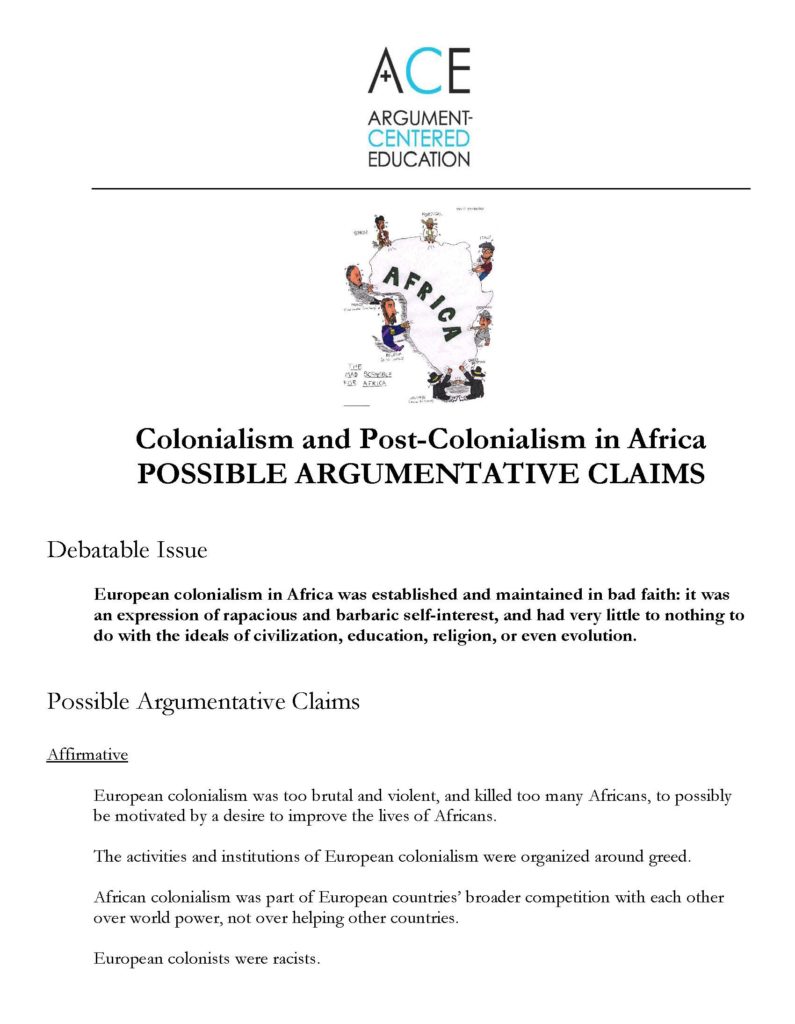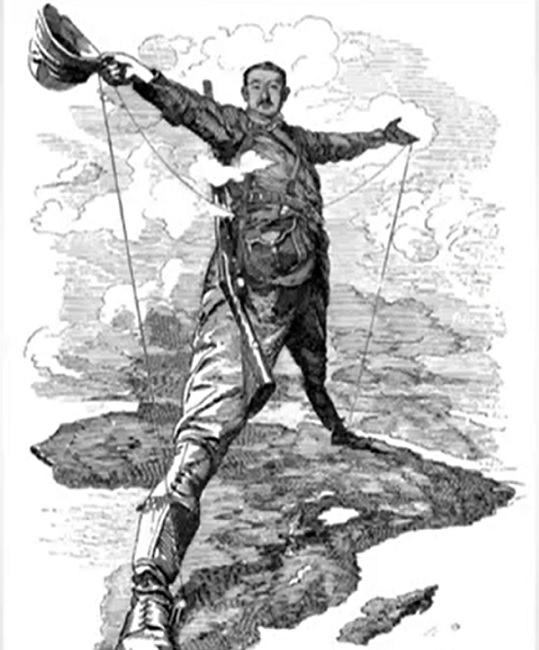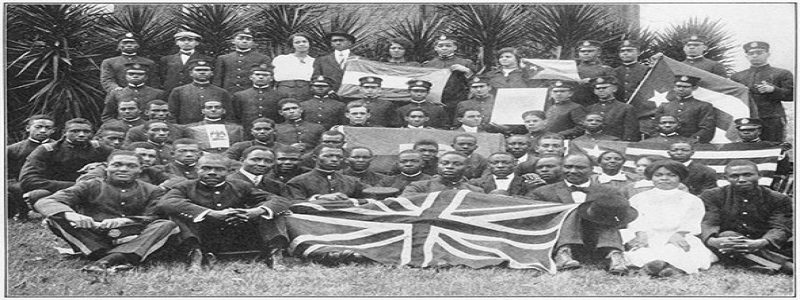
Inquiring and Arguing about European Colonialism in Africa
We have been working with partner high schools, in both World History and European History courses, on a unit on European colonialism in Africa. This topic has an inordinate number of ramifications on other fields of history and social science. To name just a few: European geopolitics in the 19th century and the lead-up to World War I; African national and political history in the 19th and early 20th centuries; racial and economic exploitation in international relations; colonial and post-colonial studies; European cultural, literary, and religious history of the 19th century; and others. Our argument-centered approach propels students to inquire into and argue about this rich and essential historical topic. And as we have been discovering ourselves in the classroom the unit laid out here has the range to serve the common ends of the secondary school spectrum: intriguing and engaging 9th graders, but also pushing even advance placement seniors to absorb sources more deeply and to take sophisticated and carefully argued positions.
We orient this unit around two debatable issues.
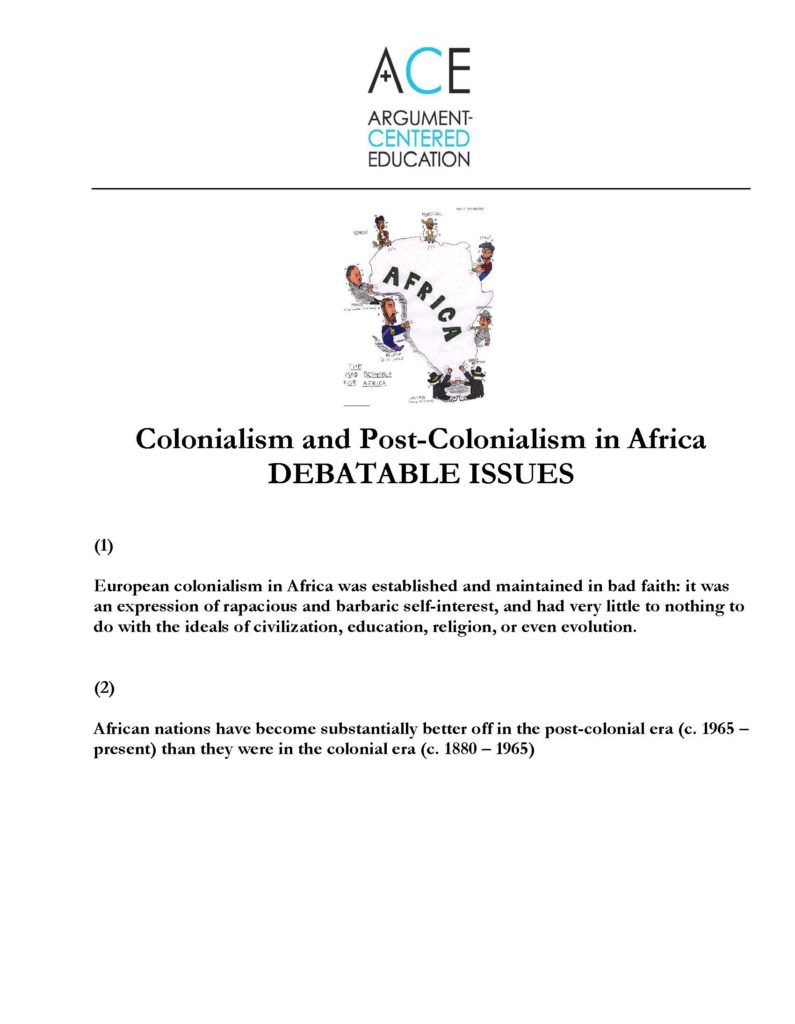
Teachers have followed, but also adapted, and helped initially create, a three-week implementation plan. The IP culminates with Table Debates, though other structured argumentation or debating formats can be (and have been) readily plugged in as a summative.
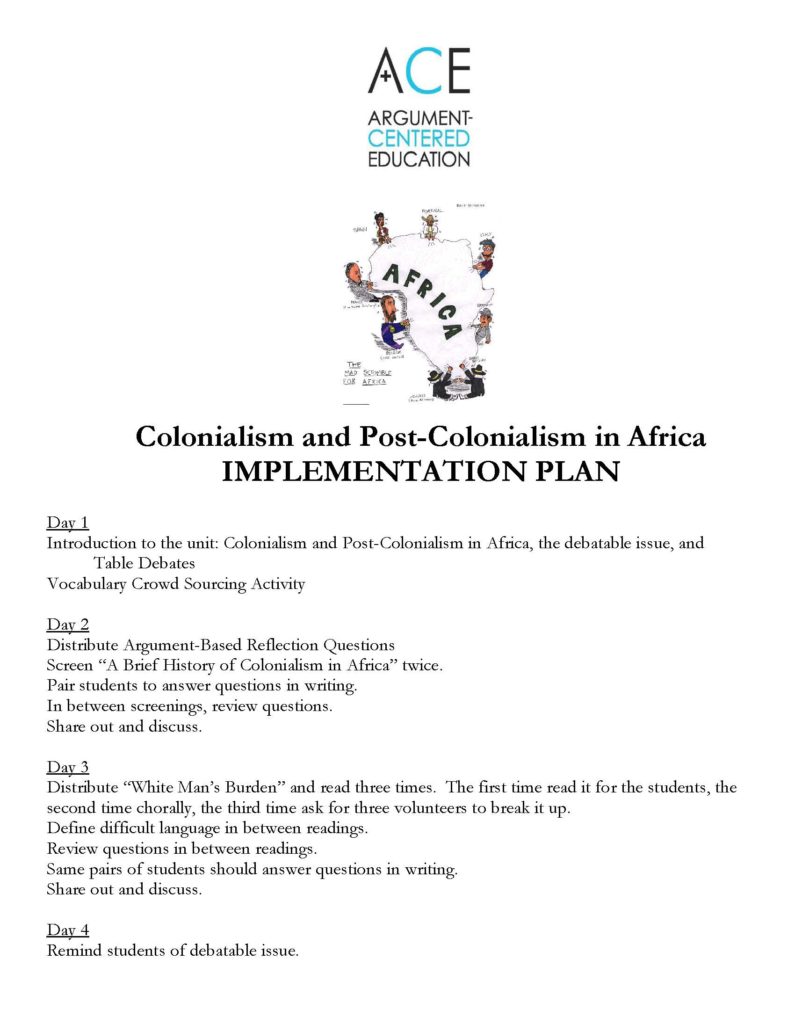
An early activity has students conduct a Vocabulary Crowd-Sourcing activity to address and begin to assimilate challenging academic vocabulary in the unit. The set of terms in the activity is adaptable, depending on student needs and prior understanding.
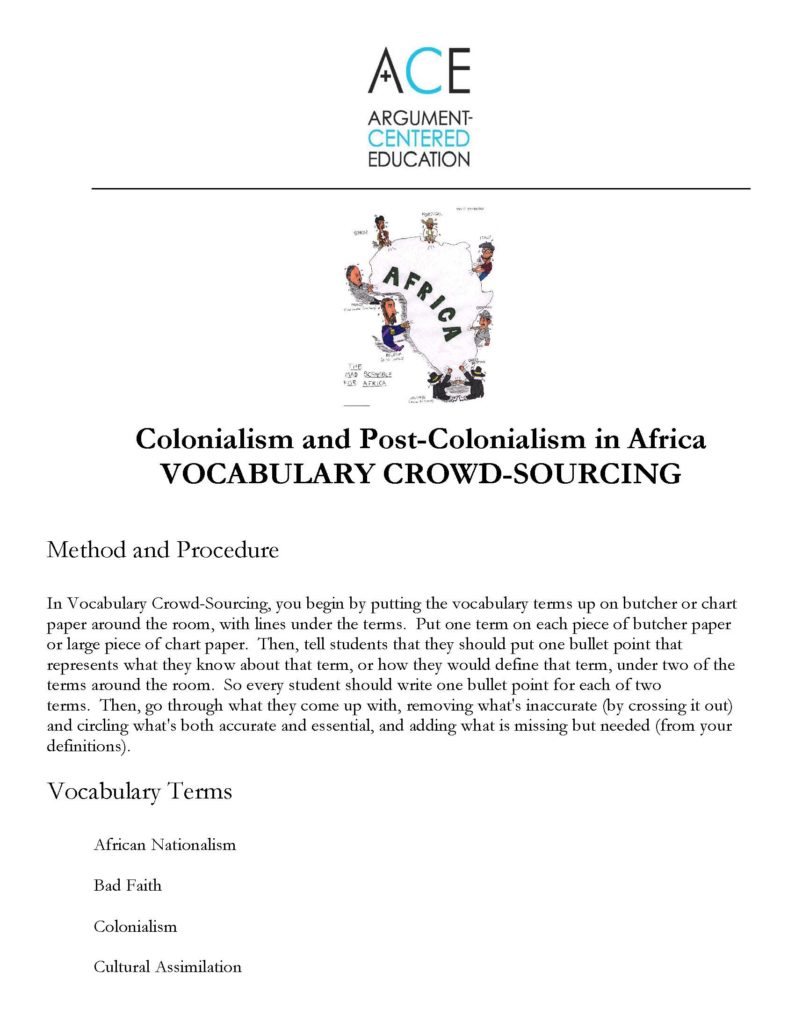
Also early in the unit, teachers screen this fascinating time-lapse visual representation of European colonialism in Africa, from the mid-15th century through the late-20th century. The aggressive land- and resource-grab is quite clearly depicted, as is the post-colonial reversals brought about by African independence movements. (I recommend, though, that you screen this video without sound; the soundtrack is distracting.)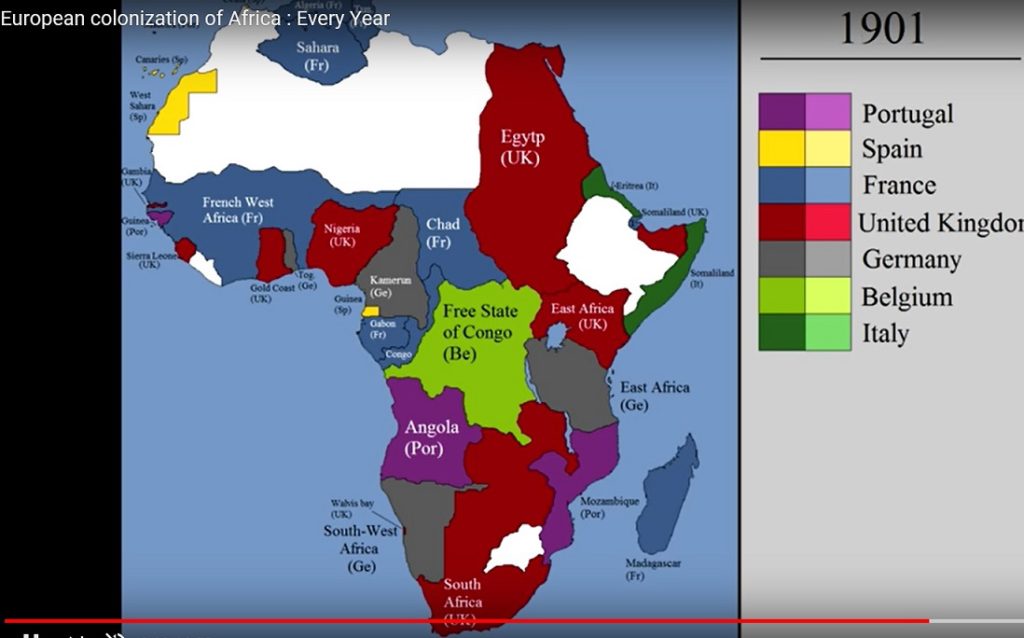
To inquire into, gain understanding, and ultimately deploy in historical argument each of the videos and texts, students work in pairs with their eventual debate partners (if you are culminating the unit with classroom debating) on argument-based reflection and discussion questions.
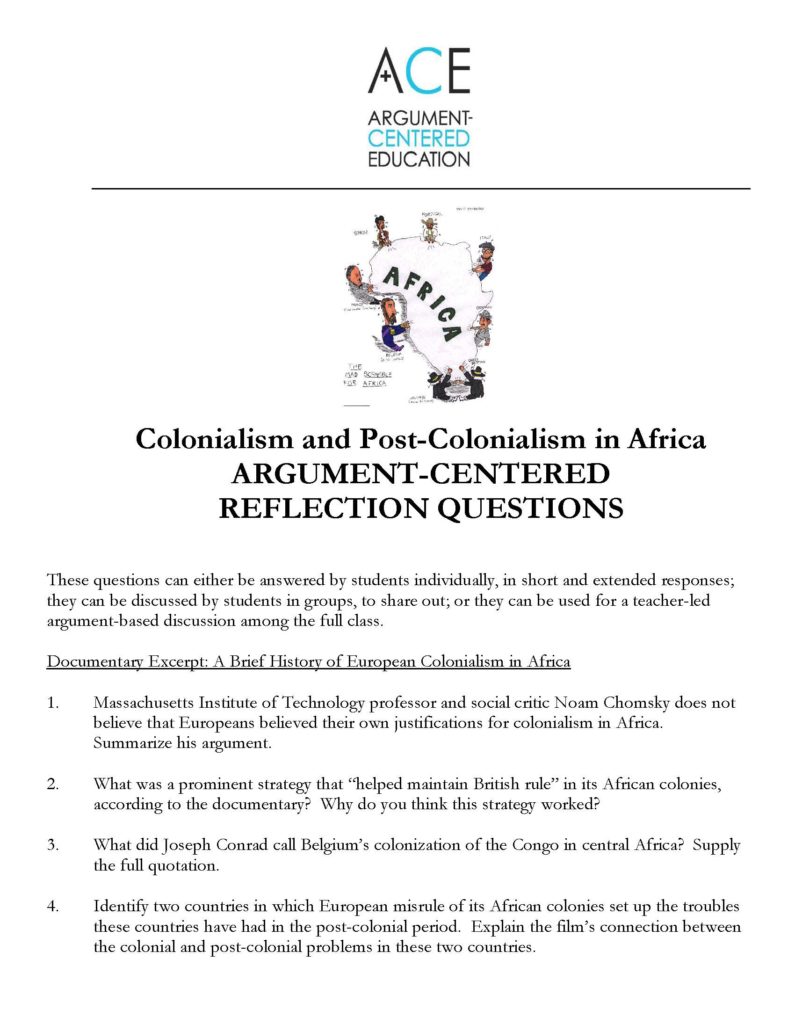
The short documentary videos in this unit are dense, information-rich, and filled with substance to support argument. Teachers are strongly encouraged to screen each of these twice, with some discussion of the argument-based questions between screenings.
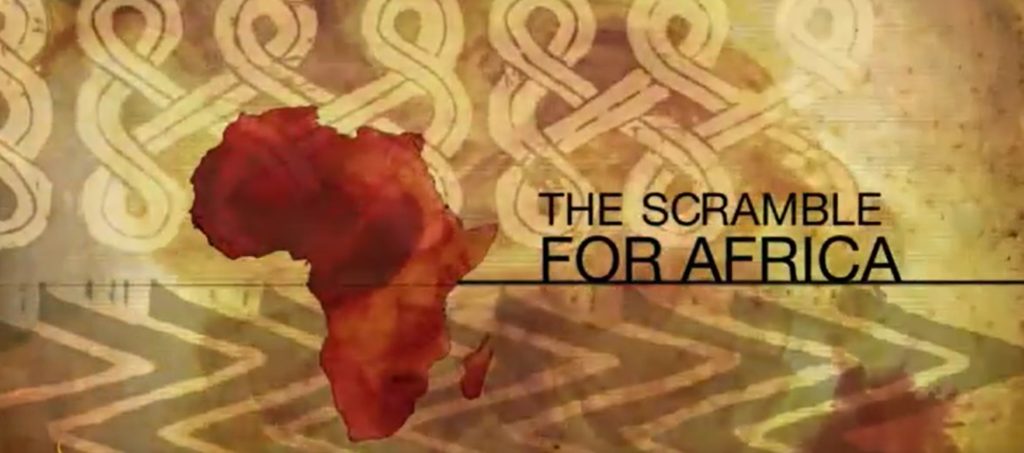
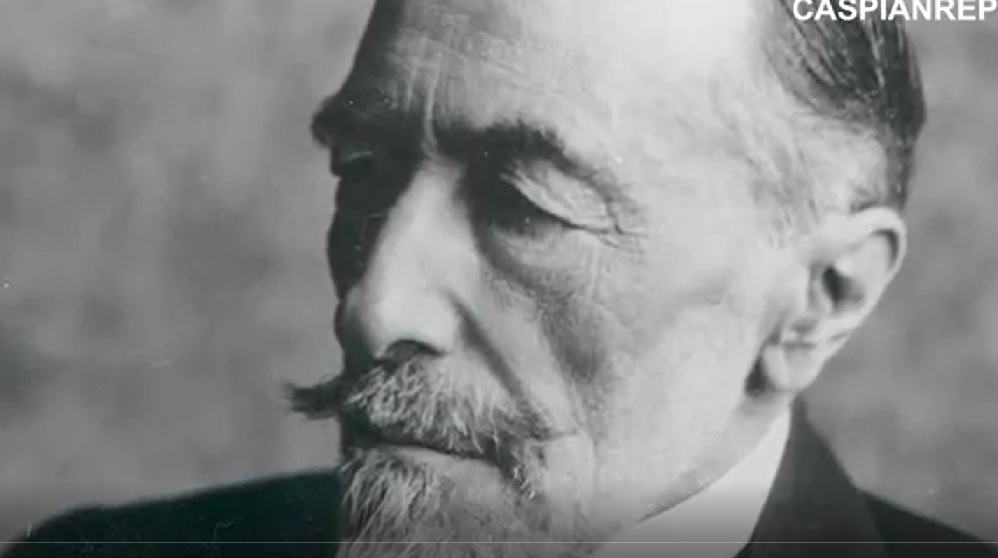 Two literary works that the unit includes, in excerpted form, are both from the year before the turn of the 20th century (1899): Conrad’s Heart of Darkness, portions of which students hear read and portions of which they read, along with Rudyard Kipling’s “White Man’s Burden”
Two literary works that the unit includes, in excerpted form, are both from the year before the turn of the 20th century (1899): Conrad’s Heart of Darkness, portions of which students hear read and portions of which they read, along with Rudyard Kipling’s “White Man’s Burden”
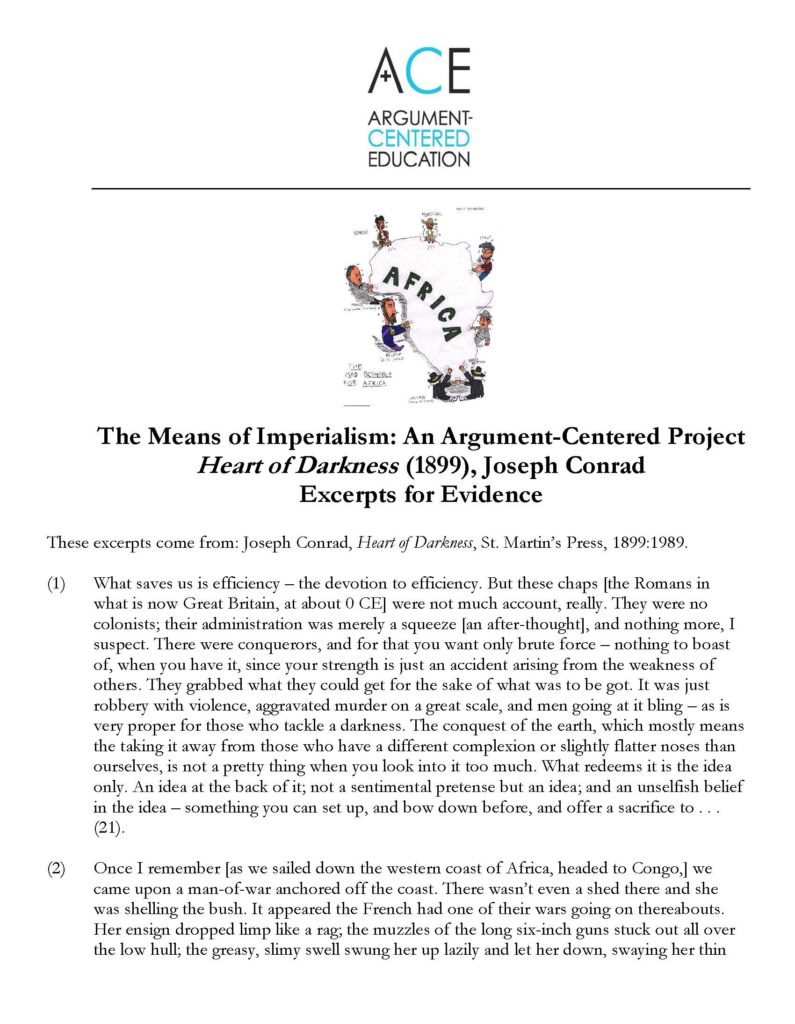
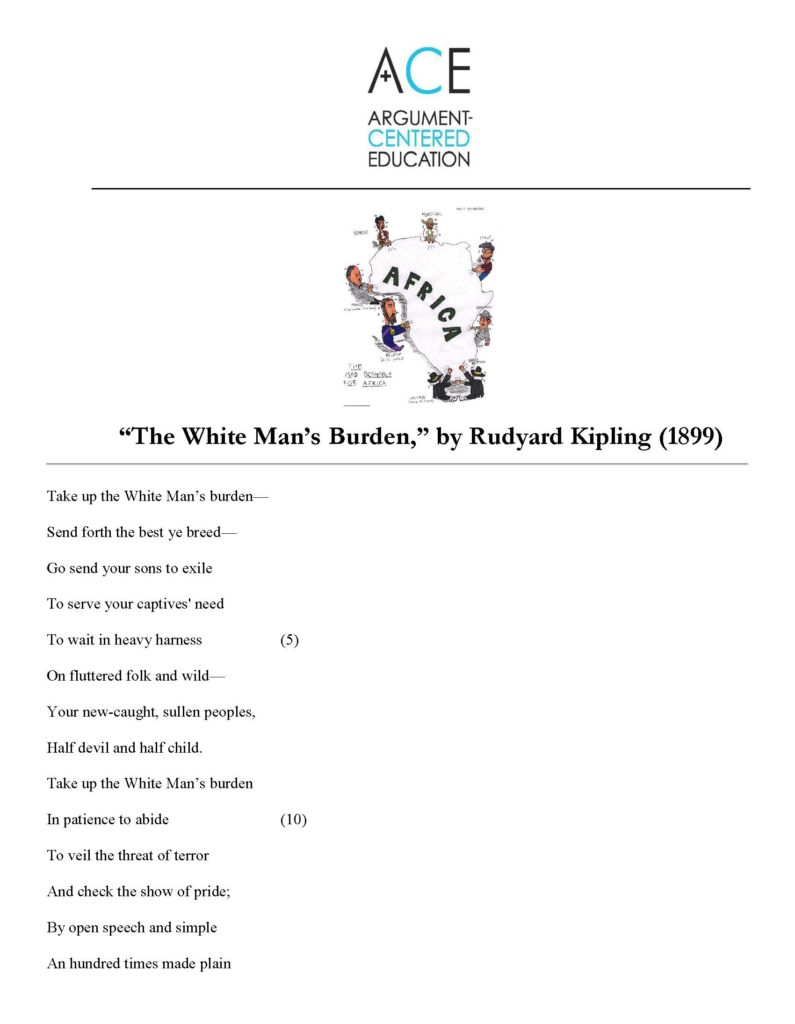
And as we have done for other argument-centered units, here we have worked with partner teachers to create a list of possible argumentative claims to support positions on the debatable issues. Teachers use these claims flexibly and adaptively, with personalized and differentiated learning strategies much in mind, and as well with an understanding of the power of academic modeling.
